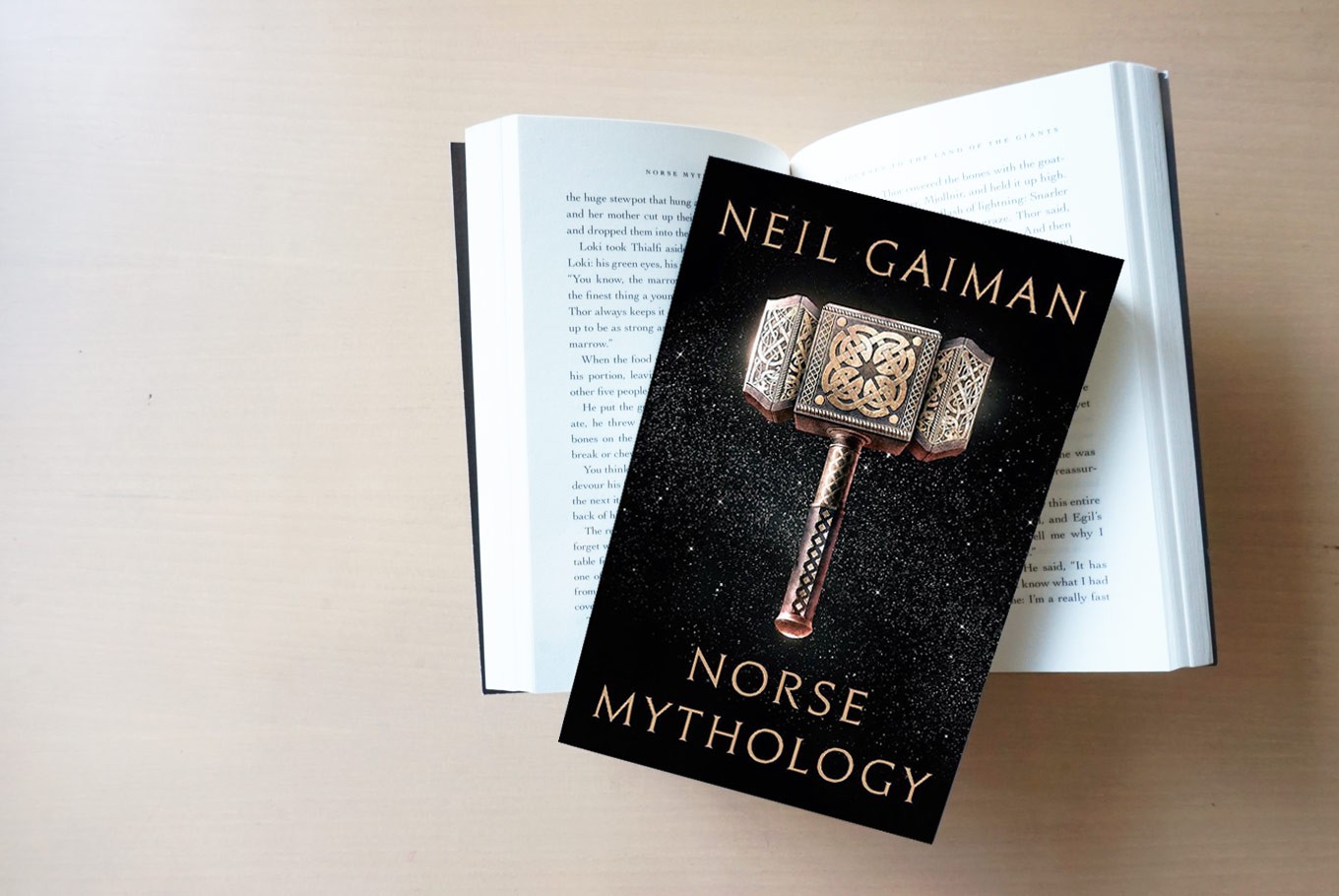Popular Reads
Top Results
Can't find what you're looking for?
View all search resultsPopular Reads
Top Results
Can't find what you're looking for?
View all search resultsBook Review: Neil Gaiman revamping old tales in 'Norse Mythology'
Understandably, the complexity of the stories and varying source materials make it hard to follow all the gods in Norse mythology. This is where Neil Gaiman comes in.
Change text size
Gift Premium Articles
to Anyone
J
ust like most other children, Neil Gaiman’s first introduction to the universe of Norse mythology was through the depiction of Thor by American comic writer Jack Kirby. Both during the silver age of comic books in the United States and now, Thor remains the most popular god of all of Asgard.
But even Thor is relatively underdeveloped as a character, as the action-packed movies in Marvel Cinematic Universe do not give much room for character development or universe building.
Understandably, the complexity of the stories and varying source materials make it hard to follow all the gods in Norse mythology. This is where Neil Gaiman comes in.
A collection of short stories, Norse Mythology brings the revamped version of the old, distant tales we have always wished to learn about but never have the time to delve into. Through Gaiman’s writings, the stories seem familiar, timeless and most importantly, alive.
Focusing on the three arguably mightiest gods, Odin, Thor and Loki, Norse Mythology covers a wide range of the period from the beginning of the world to the Ragnarok -- the great battle of the gods. The stories are fast-paced with no unnecessary fillers, and yet are in no way bland thanks to Gaiman’s witty prose.
Read also: 'American Gods': Redefining faith in society
Odin, who plays a significant role in Gaiman’s best-selling American Gods, is even more treacherous than his previous portrayal in pop-culture. Thor is not only brave and strong but also cunning when he has to be. And Loki is, well, Loki.
The stories in Norse Mythology revive the characters, the knowns and the unknowns as well, giving them room to act as humanely as they can. Relationships between the gods are forged, broken and mended. One of the most fascinating is between Thor and Loki (who is apparently Odin’s brother and not Thor’s -- how dare you lie to me all these times, Marvel!).
Here’s a taste from the book. When Thor’s wife Sif wakes up and finds that her treasured golden hair is lost, Thor immediately knows that this is Loki’s fault, putting it eloquently, “When something goes wrong, the first thing I always think is, it is Loki’s fault. It saves a lot of time.”
And yes, it is Loki who did it. The story ends shortly, with Loki left unscratched, Sif has new golden hair, and Thor gets his famed Mjollnir. It is Loki’s fault, and yet Thor is thankful for that. (kes)












